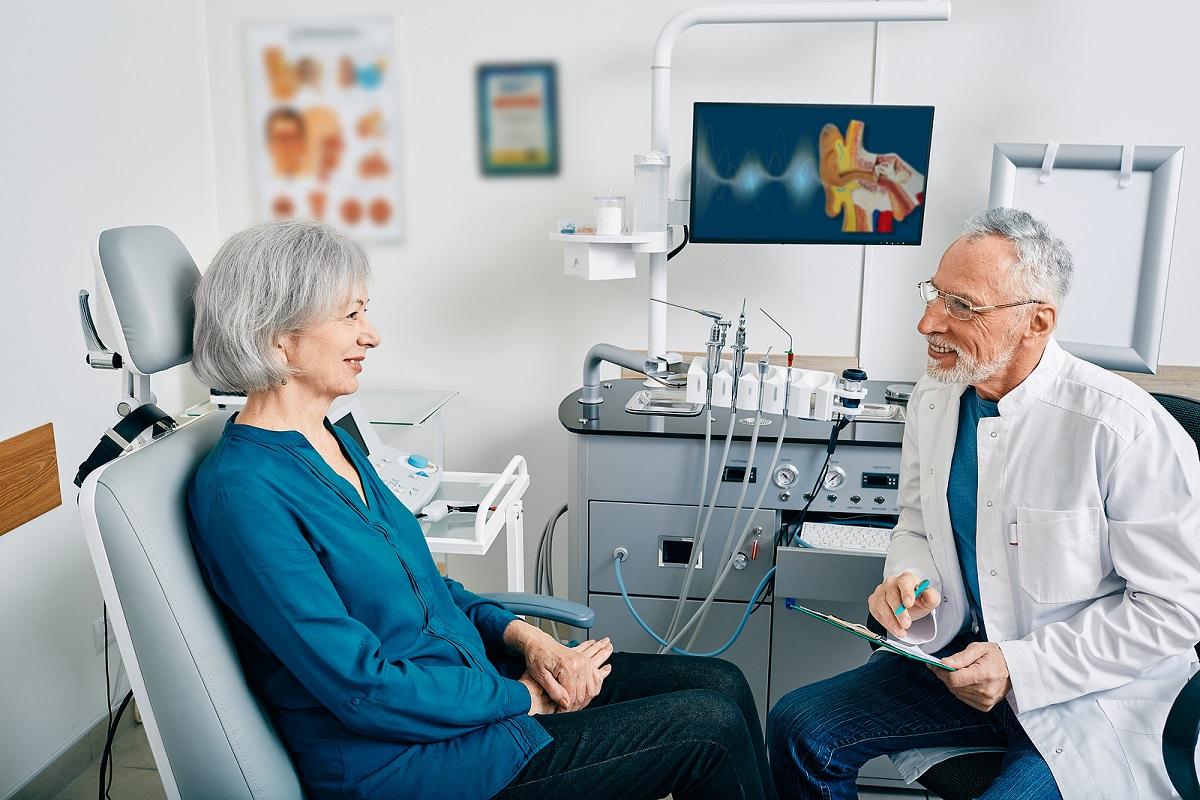One of the hardest things for many of us to accept as we age is that even if we maintain muscle mass as we age, our bones will inevitably become weaker. The body naturally removes old bone and replaces it with new bone and in our younger years, bone is replaced much more quickly than it is lost. It’s actually as early as 40 in which bone is replaced less quickly than it is depleted, increasing the likeliness of thinner weaker bones and increasing the risk of osteoporosis.
Osteoporosis is a condition in which loss of bone density increases the risk of fractures and breakage. It’s estimated to affect 44 million people in the US. According to the Centers for Disease Control and Prevention (CDC) 1 in 4 women and 1 in 20 men aged 65 and over experience osteoporosis. Aside from increasing the risk of fractures and bone breakage from an everyday bump or fall, a surprising connection has been found to loss of hearing as well.
What is Osteoporosis?
Though a lowering bone density is a common component of aging, losing bone mass quicker than tissue is created leads to osteoporosis- in which the bones become incredibly susceptible to breaks, most commonly in the wrist, spine, and hip. It’s all too common to be aware that you have osteoporosis until you suffer an unexpected injury which you wouldn’t expect to have the impact to previously cause a breakage. One of the largest concerns with osteoporosis related injuries is that because the body struggles to replace bone mass, injuries take longer to heal from, often leading to ongoing pain and issues with mobility. A surprising new connection is that loss of bone mass may also lead to permanent hearing issues.
Understanding How Hearing Works
We collect sounds with our ears, but the sound must be delivered to our brain for the cycle to be completed. The auditory system is incredibly extensive, intricate and fragile and contains several parts.
- Outer ear: Sound enters the visible part of the ear like a cup and is sent to the eardrum in the middle ear.
- Middle ear: The vibration of the ear drum then activates the three tiniest bones in body – the auditory ossicles. The ossicles amplify the sound and propel the soundwaves into the inner ear.
- Inner ear: Within the inner ear is the cochlea—a snail shaped tiny organ filled with fluid. Within the cochlea lies tiny hair-like cells called stereocilia. When vibrations are sent from the ossicles it moves the fluid within the cochlea which in turn instigates the stereocilia. The stereocilia then interpret these vibrations into electrical impulses which are sent to the auditory processing center of the brain. This is where sounds are identified, and speech is interpreted.
Link Between Hearing Loss & Osteoporosis
As you can see, it’s a complicated process to receive any sound, however, when our hearing is working it happens unconsciously and in less than a second. However, when any part of the inner ear suffers damage at least part of the process of hearing is compromised or reduced. The ossicles of the inner ear are incredibly susceptible to loss of bone mass common with osteoporosis, because they are so small and when they break down it can contribute to permanent hearing issues.
In fact, numerous studies have found that osteoporosis can increase the risk of developing hearing loss due to impact on the auditory ossicles. One study, published in The Journal of Clinical Endocrinology & Metabolism in 2015 examined the prevalence of hearing loss in patients diagnosed with osteoporosis. Researchers at the Chi Mei Medical Center in Taiwan examined data from a national health database and compiled data on 10,660 people diagnosed with osteoporosis between 1998 and 2008 to 31,980 people (selected at random) without osteoporosis. After following the study participants through 2011 they determined:
- People with osteoporosis were 76% more likely to develop sudden hearing loss.
- Women with osteoporosis were 87% more likely to develop sudden hearing loss compared to men.
Co-author of the study, Dr. Kai-Jen Tien explains, “a growing body of evidence indicates that osteoporosis affects not only bone health, but the cardiovascular and cerebrovascular systems… Our findings suggest sudden sensorineural hearing loss can be another broader health problem connected to osteoporosis.”
Addressing Hearing Loss
If you have been diagnosed with hearing loss it could point to osteoporosis and versus vices. We recommend that a great way to stay on top of your health is to schedule a hearing exam with us today.

